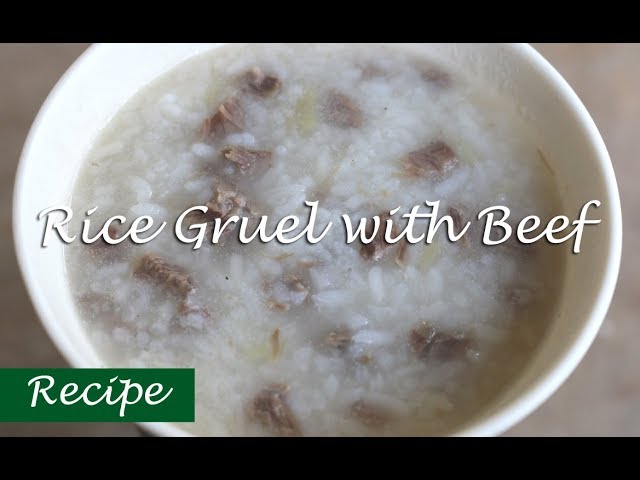
In the realm of comfort foods, few dishes boast the universal appeal and historical significance of rice gruel. Known by various names across cultures – from congee in China to jook in Korea and Japan – this humble yet nourishing dish has stood the test of time. With its simple ingredients and versatility, rice gruel has not only provided sustenance in times of scarcity but has also evolved into a beloved culinary tradition celebrated for its comforting qualities and nutritional benefits.
Origins and Historical Significance:
Rice gruel traces its roots back thousands of years, with evidence of its consumption found in ancient civilizations across Asia. Its origins are closely tied to the cultivation and domestication of rice, which has been a staple food for many cultures throughout history. In times of famine or scarcity, rice gruel served as a practical solution to stretch limited resources while providing essential nourishment.
Historically, rice gruel has played a vital role in various cultural and religious practices. In Chinese culture, it is often consumed during times of mourning as a symbol of respect for the deceased. Similarly, in South Korea, a ceremonial rice gruel called “siraegi juk” is prepared for ancestral rites, highlighting its significance beyond mere sustenance.
Preparation and Variations:
The preparation of rice gruel typically involves simmering rice in water or broth until it reaches a porridge-like consistency. While rice is the primary ingredient, the variations in seasoning, toppings, and cooking methods are vast and diverse, reflecting regional preferences and culinary creativity.
In China, congee is often served plain or with savory additions such as preserved eggs, pickled vegetables, or shredded meats. In Japan, okayu is a delicate rice gruel enjoyed with toppings like umeboshi (pickled plums) or nori (seaweed). Meanwhile, in Korea, juk is celebrated for its medicinal properties, with variations featuring ingredients like ginseng, chestnuts, or red beans.
Nutritional Benefits:
Beyond its comforting flavor and cultural significance, rice gruel offers a plethora of nutritional benefits. As a gentle and easily digestible food, it is often recommended for individuals with digestive issues or those recovering from illness. The simplicity of its ingredients – primarily rice and water – makes it a suitable option for people with dietary restrictions or sensitivities.
Rice gruel is rich in carbohydrates, providing a sustainable source of energy. Additionally, it contains essential vitamins and minerals, including B vitamins, iron, and magnesium. Depending on the ingredients and toppings used, it can also be a source of protein and fiber, contributing to a balanced diet.
Health and Wellness:
In addition to its nutritional value, rice gruel is celebrated for its therapeutic properties in traditional medicine practices. In Chinese medicine, congee is considered a healing food that nourishes the body’s Qi (life force) and supports digestion. It is often recommended for individuals experiencing digestive issues, fatigue, or weakness.
Moreover, rice gruel’s gentle and soothing nature makes it a popular choice for individuals seeking comfort during times of stress or illness. Its warm and nourishing qualities provide a sense of solace and restoration, making it a beloved comfort food across cultures.
Culinary Evolution and Modern Adaptations:
While rice gruel has deep roots in tradition, it continues to evolve in response to contemporary tastes and dietary preferences. In recent years, chefs and home cooks alike have experimented with innovative flavor combinations and ingredient pairings, reimagining rice gruel as a gourmet dish.
Modern adaptations of rice gruel often feature locally sourced ingredients, artisanal toppings, and creative presentations. From savory renditions infused with exotic spices to sweet variations adorned with fresh fruits and honey, the possibilities are endless.
Conclusion:
In a world filled with culinary extravagance and trendy superfoods, rice gruel stands as a timeless classic cherished for its simplicity, nourishment, and comfort. From its humble origins as a staple food of ancient civilizations to its modern-day reinventions in gourmet kitchens, rice gruel continues to captivate hearts and palates around the globe. Whether enjoyed as a hearty breakfast, a healing remedy, or a gesture of cultural reverence, the allure of rice gruel transcends borders and generations, making it a true culinary treasure worth savoring.






